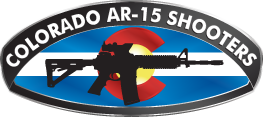Federal Agency Weighed Spying on Cars at Gun Shows
Here is an interesting story from the WSJ.
Quote:
WASHINGTON—A federal agent proposed using license-plate readers to scan vehicles around gun shows in order to aid gun-trafficking investigations, according to an internal Justice Department email.
Justice Department officials said Tuesday that the 2009 proposal was rejected by superiors and never implemented.
The email was part of a series of Drug Enforcement Administration documents describing how the agency is building a national database tracking the movements of vehicles in the U.S. The documents were obtained by the American Civil Liberties Union through a Freedom of Information Act request and reviewed by The Wall Street Journal.
“The proposal in the email was only a suggestion. It was never authorized by DEA, and the idea under discussion in the email was never launched,’’ according to DEA administrator Michele Leonhart.
National Rifle Association spokesman Andrew Arulanandam said the NRA is “looking into this to see if gun owners were improperly targeted, and has no further comment until we have all the facts.”
The proposal shows the challenges and risks facing the U.S. as it looks to new, potentially intrusive surveillance technology to help stop criminals.
Many of the government’s recent efforts have scooped up data from innocent Americans, as well as those suspected of crimes, creating records that lawmakers and others say raise privacy concerns.
The Journal reported Monday that the DEA, an arm of the Justice Department, has been quietly building a database to monitor and store data about vehicles on major highways. Internal documents show the primary goal of the database is asset forfeiture, a controversial practice of seizing motorists’ possessions if police officers suspect they are criminal proceeds. Sometimes, those seizures take place without evidence of criminal wrongdoing.
Full article
DEA was Thinking of Tracking Gun Owners
Here is another tinfoil hat tidbit.....
http://arstechnica.com/tech-policy/2...-at-gun-shows/
http://cdn.arstechnica.net/wp-conten..._b-640x478.jpgKordite
FURTHER READING
http://cdn.arstechnica.net/wp-conten...oy-300x150.jpgUS EXPANDS SPY PROGRAM ON AMERICAN DRIVERS BEYOND BORDER REGION
New docs also show DEA captured over 793M plates in four-year period.
Nearly six years ago, two federal law enforcement agencies considered using license plate readers (LPRs) at gun shows—at least in the Phoenix, Arizona area.LPRs scan plates at a very high speed—often 60 plates per second—and record the date, time, and precise location that a given plate was seen. Typically, on a patrol car, that plate is then immediately compared to a list of wanted or stolen cars, and if a match is found, the software alerts the officer. But all scans are routinely kept by various law enforcement agencies for long periods of time, sometimes as long as years or more.
According to a heavily redacted set of documents that the American Civil Liberties Union (ACLU) received and published earlier this week, a 2009 e-mail presumably from the Drug Enforcement Agency states that the “DEA Phoenix Division Office is working closely with the [Bureau of Alcohol Tobacco and Firearms] on attacking the guns going to [REDACTED] and the gun shows, to include programs/operation with LPRs at the gun shows.”
http://cdn.arstechnica.net/wp-conten...pr-640x268.jpgEnlarge
American Civil Liberties Union
DEA Administrator Michele Leonhart said in a released statement, “The proposal in the e-mail was only a suggestion. It was never authorized by DEA, and the idea under discussion in the e-mail was never launched.”
FURTHER READING
http://cdn.arstechnica.net/wp-conten...te-300x100.jpgTHE COPS ARE TRACKING MY CAR—AND YOURS
My quest to access automatic license plate reader (LPR) records.
The Department of Justice, the parent agency of the DEA, has declined to respond to Ars’ specific questions about its use of LPRs.“The DEA’s statement alleviates some concerns, but if the program was cancelled, why didn’t we get any documents reflecting that decision in response to our FOIA request?” the ACLU wrote in a blog post. “The agency should now release such documents, and also create and release a written policy that it will not target First Amendment-protected activity in the future.”
A 2011 e-mail from the same set of documents says that the DEA's LPR program can "store up to 10 photos per transaction including 4 occupant photos."
Law enforcement has argued as recently as last week that such records are indispensable for recovering stolen cars and for using in criminal investigations. The devices are rapidly being deployed by state and local law enforcement agencies—notably some communities (such as the wealthy small town of Piedmont, California) have even put them up as an electronic border against their neighboring towns.
However, privacy advocates counter that the devices are being used at all levels of government to gather bulk data on American drivers’ whereabouts for no reasonable criminal justice purpose.
